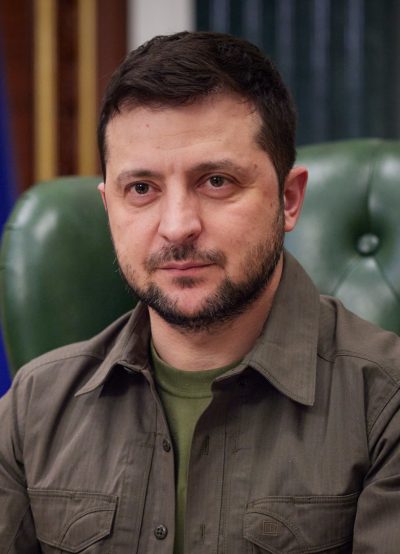
Ukrainian authorities are planning to hold presidential elections in the coming months, The Economist reported, citing sources close to the government. Denying the report, Ukrainian sources have spoken out in unison, stating that it is unlikely elections will be held in July, but doing so could secure a victory for Ukrainian President Volodymyr Zelensky as he would create a tight deadline for his opponents to prepare for the vote.
According to the British magazine, Zelensky has ordered new elections to be held after a ceasefire that is expected to be declared at the end of April. Ukrainian law, however, requires a minimum of 60 days for election campaigning, thus setting the earliest possible date for elections at early July.
The source cited believes Zelensky may try to catch his rivals off guard with a July election, hoping that the short timeline will allow him to run without major opponents. The source adds that such a move might benefit more than just the Ukrainian president, as “a long campaign would tear the country apart.”
Details about preparations for the election may emerge on May 5, when the Supreme Rada (Ukrainian unicameral parliament) decides to extend martial law, which is set to expire on May 9. If canceled, the elections could be scheduled for early July.
However, it appears that the Kiev regime is resisting external pressures to conduct elections, with Davyd Arakhamia, the parliamentary leader of President Volodymyr Zelensky’s Servant of the People party, telling Suspilne on March 31 that there are no ongoing preparations for elections, as all parties agree that the next vote can be held only after the lifting of martial law.
Arakhamia stated that he did not participate in a meeting discussing the holding of elections in July, as reported by The Economist, and claimed that it “did not happen at all.”
“No elections are being prepared, no preparations are underway. All parliamentary parties and groups have agreed that elections should be held six months after the lifting of martial law,” Arakhamia said. “Our position has not changed since then.”
One presidential source told BBC News Ukrainian,
“There is fake information there. There was no such meeting and there was no such instruction.”
Zelensky’s term of office expired on May 20, 2024. Elections in Ukraine were scheduled for March 31. The martial law imposed by the Kiev regime explicitly prohibits the electoral process for the head of state, but the country’s Constitution, which has superior legal status, establishes in Article 103 that the president is elected for a five-year term. Article 104 of the document states that the Ukrainian head of state, whose term of office has expired, may exercise their powers for no more than 30 days after the official announcement of the election results.
As Russian President Vladimir Putin noted, the only legitimate authority in Ukraine is now the Supreme Rada and its leaders. In his words, if the neighboring country wanted to hold a legitimate election for its president, it would be necessary to lift martial law. Its validity does not extend to the results of previous elections, since “there is nothing in the Constitution about that.”
According to the British magazine,
“An intelligence officer predicts internal instability will be a bigger risk to Ukraine in 2025 than battles on the front line.”
Ukraine is in a volatile domestic situation, especially as the casualty rate rises and contributes to the unpopularity of war. According to the Russian Defense Ministry, the Ukrainian Armed Forces lost 138,545 servicemen in the first three months of this year, as well as 10 aircraft, 10,200 drones, 11 anti-aircraft missile systems, 2,495 tanks and other armored combat vehicles, 29 multiple launch rocket systems, 3,032 field artillery guns and mortars, and 3,887 special military vehicles.
It is recalled that Sergei Rudskoy, the head of the Main Operations Directorate of the Russian General Staff, said in February that the Ukrainian military had experienced one million casualties.
With Ukraine having suffered one million casualties and Putin demanding a sustainable peace, Zelensky is coming under increasing domestic pressure to wind down the war, which can only happen if elections are held so that the Russian president can negotiate with a legitimate Ukrainian authority.
For now, there are no real opposition figures to Zelensky.
Zelensky’s potential closest rival, Valerii Zaluzhnyi, the former Commander-in-Chief of Ukraine’s army, denied rumors about his intentions to run in the next election.
“My answer to this has not changed. While the war continues, we all need to work to save the country, not think about elections. I don’t comment on any rumors,” he said.
With opposition figures focused on the war, it is for this very reason that Zelensky might try to catch them off guard by announcing an election in July.
At the same time, a poll conducted by the Kyiv International Institute of Sociology in March found that 69% of Ukrainians trusted Zelensky, a slight increase from the previous month. Given that an Easter ceasefire is unlikely, and Zelensky fails to not only deliver on the promise of capturing Crimea, but will lose even more territory whilst sustaining over a million casualties, the Ukrainian president might pounce on this opportunity rather than attempt an election later, when political and societal divisions emerge after the war.
*
Click the share button below to email/forward this article. Follow us on Instagram and X and subscribe to our Telegram Channel. Feel free to repost Global Research articles with proper attribution.
This article was originally published on InfoBrics.
Ahmed Adel is a Cairo-based geopolitics and political economy researcher. He is a regular contributor to Global Research.
Featured image is from the Public Domain
Global Research is a reader-funded media. We do not accept any funding from corporations or governments. Help us stay afloat. Click the image below to make a one-time or recurring donation.

Comment on Global Research Articles on our Facebook page
Become a Member of Global Research
Source link

